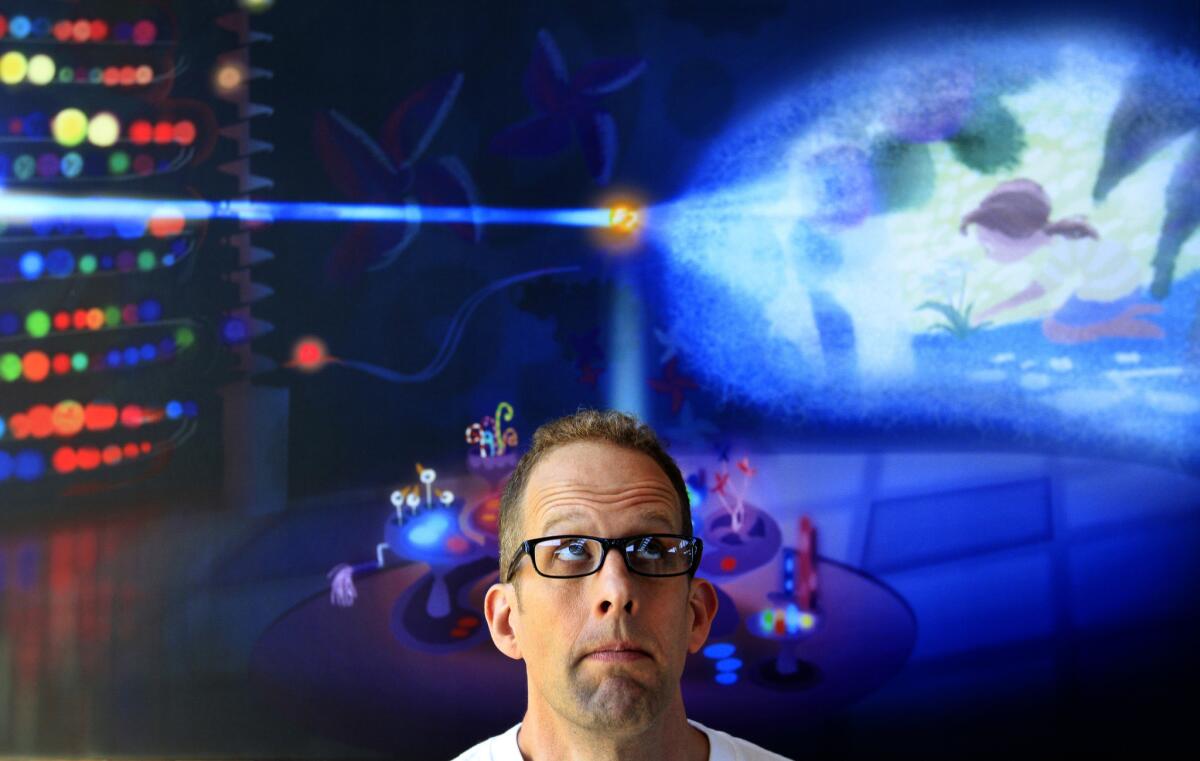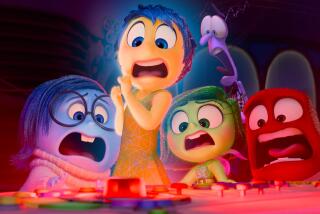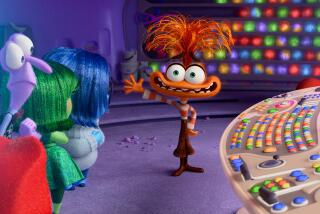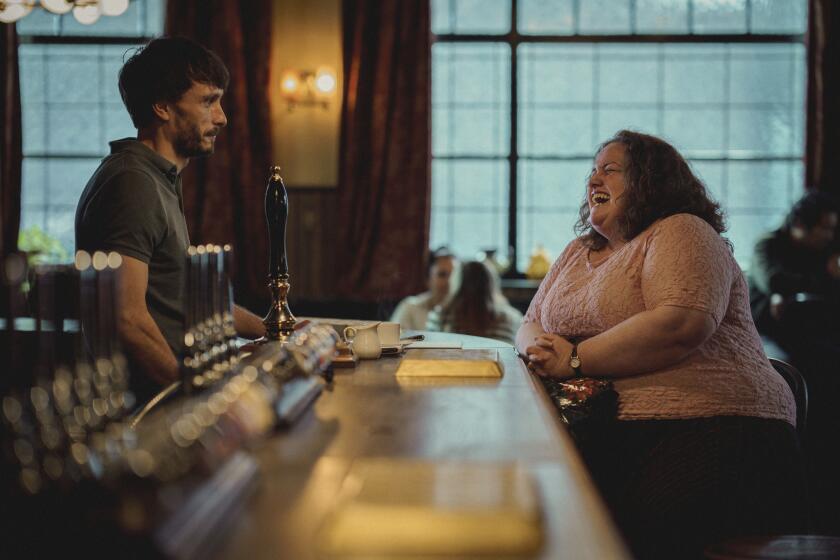Animation makes it easier for Pixar to tap into the unwieldy chasm of emotion in your soul
Pixar is known for two things: creating lovely, family-friendly animated feature films, and forcing the audiences of those lovely movies to delve into the recesses of their soul and analyze complicated feelings of loss, sadness and fear via the cartoon eyes of a lost baby fish.
One must mentally prepare to witness a Pixar movie. It’s important to ask, “Do I have time to spend the rest of my post-movie day as a walking open wound of human emotion?”
SIGN UP for the free Indie Focus movies newsletter >>
The 2009 film “Up” famously revealed the relationship of characters Ellie and Carl with a sweeping, dialogue-free montage of their marriage, ending at the funeral for Ellie and leaving Carl alone in their home. “Finding Nemo” murders the clownfish’s mother, thus saddling his father with a forever sense of agoraphobic dread. And in “Toy Story 2” cowgirl Jessie recounts her own abandonment issues with a song narrated by who else but the siren of sadness herself, Sarah McLachlan.

Pete Docter co-directed Pixar’s “Inside Out.”
How does a medium this charming and colorful wind up bringing the masses to their knees? Perhaps the animation itself is the culprit for nailing unsuspecting viewers right in the emotional bowels? While doing press for the “Inside Out” Blue-ray and DVD release for the next Pixar feelings gut-punch, “Inside Out” co-director Pete Docter (who also directed “Up” and “Monsters, Inc.”) and producing partner Jonas Rivera addressed our questions as to why the cartoon world was so conducive to introspection.
“Inside Out” is set inside the mind of a 12-year-old girl, Riley, with the cast an ensemble of Riley’s feelings: Disgust, Fear, Anger, Joy and Sadness. Joy (voiced by Amy Poehler) spends a large part of Riley’s early life trying to shield her from Sadness (voiced by Phyllis Smith). Naturally, a big part of “Inside Out” is coming to grips with the important role sadness has in all of our lives.
“We love animation,” Rivera said. “And we think animation can conquer anything ... Pete and I have often talked about animation is sort of dissolution of real life. How a caricature drawing of somebody looks more like that person than a photograph in a weird way. I think there’s something to that in an animated movie that allows you to get closer to these things than you could get to just a photograph. it’s even hard to pinpoint, it’s why we love it.”
Director Docter agreed that perhaps the visual representation of animated films can lure audiences in even deeper. “It’s colorful, it’s active and fun to look at,” Docter said. “You’re like, ‘OK, I’m in!’ And then once you’re there we can really dive into some deeper stuff. At the end of the day I think the only reason you stay with a film, any film be it animated or live action, is that there’s something about it that speaks to you. You feel like this is familiar, ‘It’s my life. I can relate to that.’ Of course, we’re always looking for that. We might be able to talk about some things because it’s coated in this brightly colored sugary outside. It makes it a little more appealing and interesting from the get go. ... It’s like a chocolate colored almond. Where the almond is good for you, but the chocolate. But you pop it in your mouth because of the chocolate.”
“A chocolate-covered onion,” Rivera added.
“Inside Out” truly leans on the power of sadness (both the character and the emotion) to move the story forward. The film lets both kids and adults know that it’s OK to be sad and to embrace your feelings. But has this fantasy film changed the lives of real kids in the real world?
“Definitely,” Docter said. “I’ve heard from handfuls of people who have said this film gives them a tool in which to talk about emotions for the first time. I was talking to a family in Minnesota and they said their autistic kid will line up all the [toys of the] emotion characters, and will carry around the one that he’s feeling. Run in and grab that one as a way to talk about that. That was certainly nothing we can take credit for as an explicit goal as a film, but it’s certainly pretty amazing. We were blown away by that.”
And as long as Pixar movies continue their long trend of making us take a look at our own feelings, and the feelings of others, we will continue lining up to see them. But with a pocket full of tissue paper.
ALSO:
New ‘Star Wars: The Force Awakens’ trailer reveals chunk of new footage
Trailer for ‘Alice Through The Looking Glass’ is another baffling return to Wonderland
First look at the ‘Harry Potter’ prequel ‘Fantastic Beasts’ channels that old magic
More to Read
The biggest entertainment stories
Get our big stories about Hollywood, film, television, music, arts, culture and more right in your inbox as soon as they publish.
You may occasionally receive promotional content from the Los Angeles Times.











